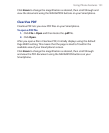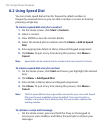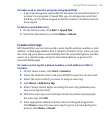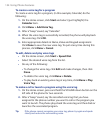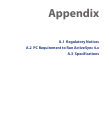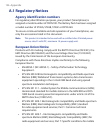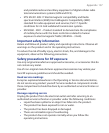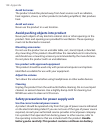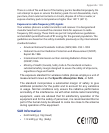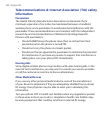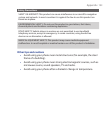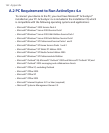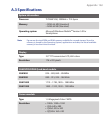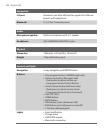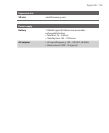
Appendix 159
There is a risk of fire and burns if the battery pack is handled improperly. Do
not attempt to open or service the battery pack. Do not disassemble, crush,
puncture, short external contacts or circuits, dispose of in fire or water, or
expose a battery pack to temperatures higher than 140° F (60° C).
Exposure to radio frequency (RF) signals
Your wireless phone is a radio transmitter and receiver. It is designed and
manufactured not to exceed the emission limits for exposure to radio
frequency (RF) energy. These limits are part of comprehensive guidelines
and establish permitted levels of RF energy for the general population. The
guidelines are based on the safety standards previously set by international
standards bodies:
• American National Standards Institute (ANSI) IEEE. C95.1-1992
• National Council on Radiation Protection and Measurement (NCRP).
Report 86. 1986
• International Commission on Non-Ionizing Radiation Protection
(ICNIRP) 1996
•
Ministry of Health (Canada), Safety Code 6. The standards
include a
substantial safety margin designed to assure the safety of all persons,
regardless of age and health.
The exposure standard for wireless mobile phones employs a unit of
measurement known as the Specific Absorption Rate, or SAR.
The standard incorporates a substantial margin of safety to give
additional protection for the public and to account for any variations
in usage. Normal conditions only ensure the radiative performance
and safety of the interference. As with other mobile radio transmitting
equipment, users are advised that for satisfactory operation of the
equipment and for the safety of personnel, it is recommended that no
part of the human body be allowed to come too close to the antenna
during operation of the equipment.
SAR Information
• 0.629 mW/g @ 10g (Head)
• 1.12 mW/g @ 10g (Body)



